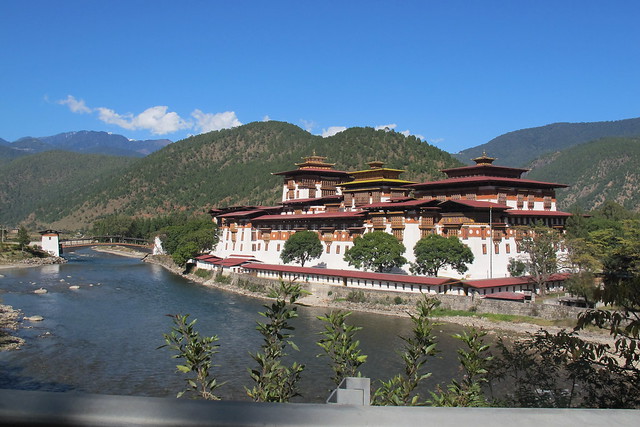Bhutan just doesn’t stop being inspirational. After championing a Gross National Happiness Index instead of measuring development in Gross Domestic Product, they have now announced that they will be the first country on its way to be exclusively organic.

Image by Capra Initiative via Flickr Creative Commons.
According to Pema Gyamtsho, Bhutan’s minister of agriculture and forests, the kingdom adopted its National Organic Policy out of both practical and philosophical concerns – for one, at this point in time most of the country’s farmers (two-thirds of the population of around 740,000) are organic producers by default, having little access to agricultural inputs such as chemical fertilizers or pesticides. Then, the mountainous terrain would very likely cause chemicals to run off downstream, polluting the very groundwater that a third of the population uses as drinking water supplies. The exploration of new techniques such as sustainable root intensification means that Bhutan is actually expecting yields to rise under a completely organic production regime, and the government is sending farmers to India to Vandana Shiva‘s organic training farm to acquire knowledge they can later distribute in the country.
From a philosophical point of view, the minister explained that the country’s main religion, Buddhism, supports living in harmony with nature and giving all living creatures, animals, insects and plants alike, the same right to live and be happy.
Yet, the Guardian article also points out that recent erratic weather patterns as well as the changing socio-economic conditions – more young people moving out of villages and seeking employment in cities as well as abroad – might make the transition a difficult one for farmers who have gotten used to conventional technology. Organic farming inherently necessitates more labor input, and while there are a number of ways to increase land fertility without chemical fertilizers, access to this knowledge might be key for farmers such as district farm officer Rinzen Wangchuk, who explained that “the last few years we have had problems with the crops. The weather has been very erratic. It’s been warmer than normal and all the chilli crops are full of pests. We are having to rely on fertilisers more than we have ever had to in the past and even these are not working as well as they initially did.”
It will be interesting to see how this tiny country tackles the challenges and opportunities this policy shift has introduced. For now, there is no strict time line or limit within which the transition needs to be achieved; rather, the Agricultural Minister stressed the need for changes in mindsets when he said that “what is at stake is the future. We need governments who can make bold decisions now rather than later.”
I have just authored a book(“The Poison Planters”) regarding the need for organic farming and the toxic threats from the GMO companies. You can visit the website (www.thepoisonplanters.com) or go to amazon.com or Kindle to see how dangerous the situation has become from the planting of crops regarded by many scientists as poison, and the attempts by the chemical companies to destroy organic agriculture.
Thanks for the link!